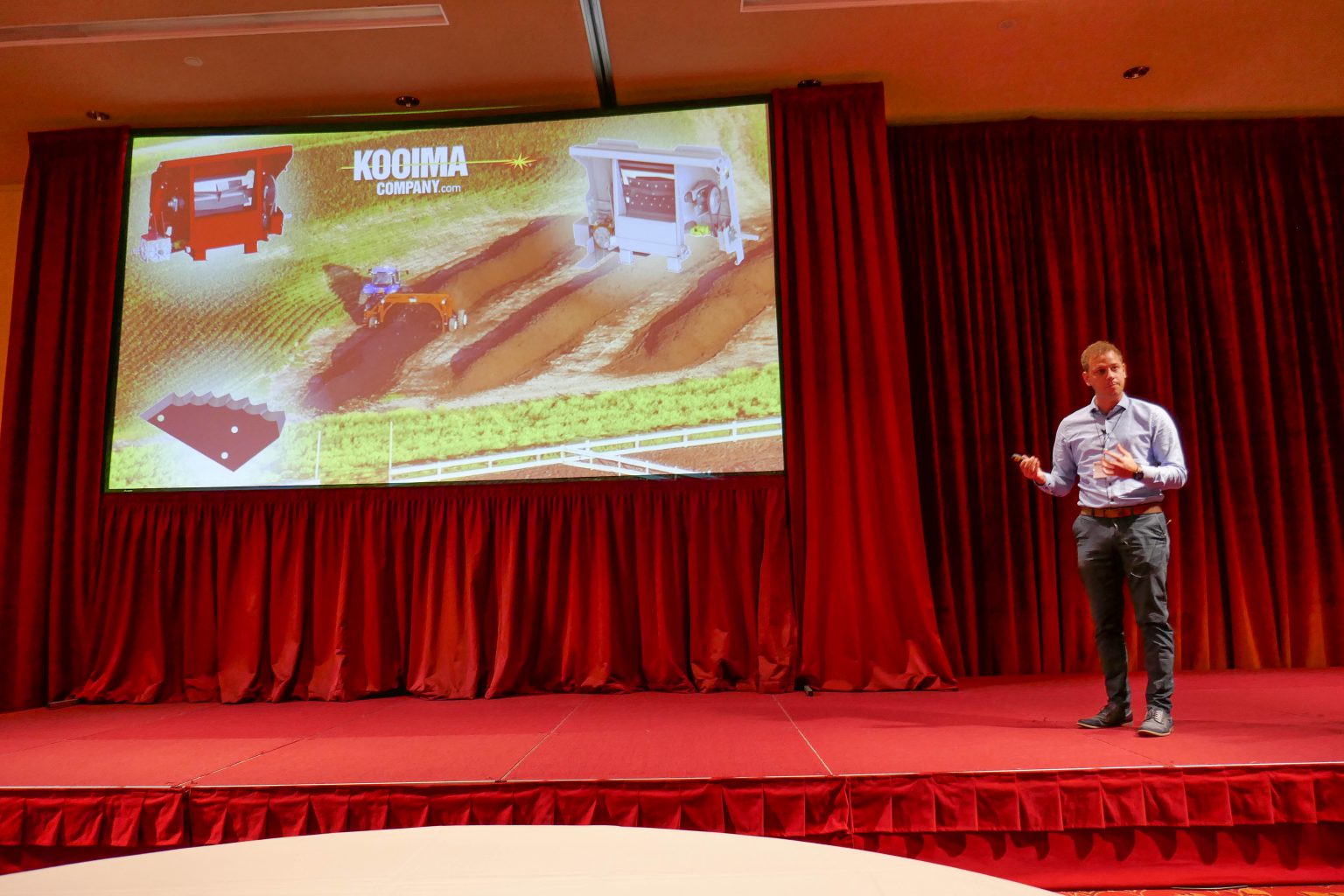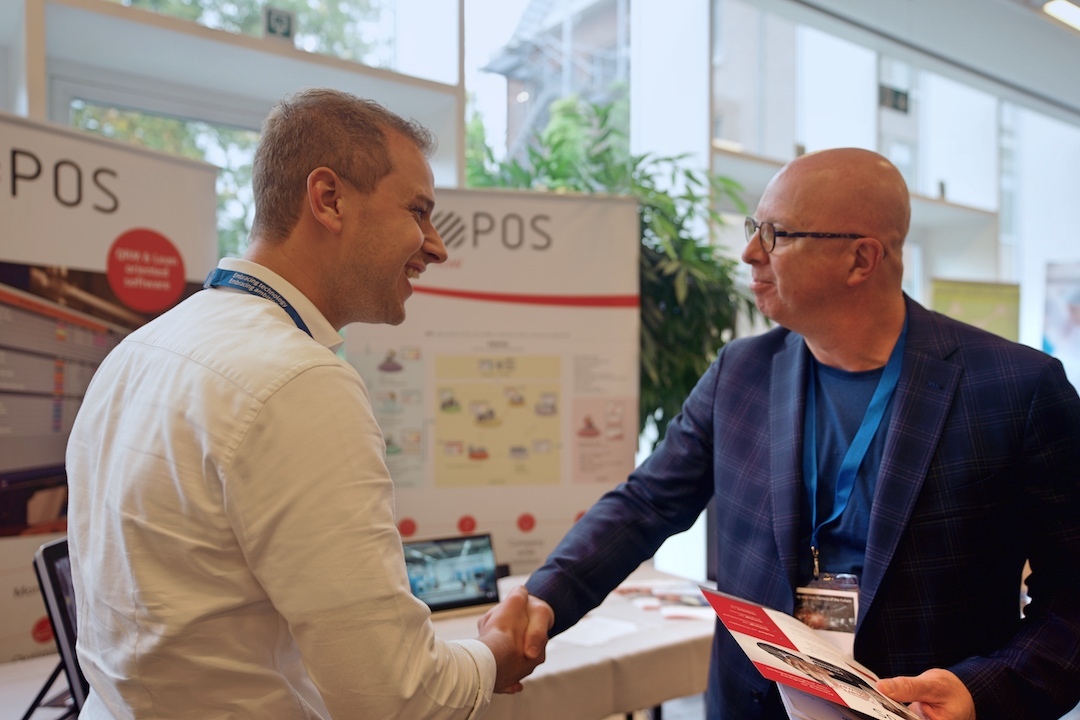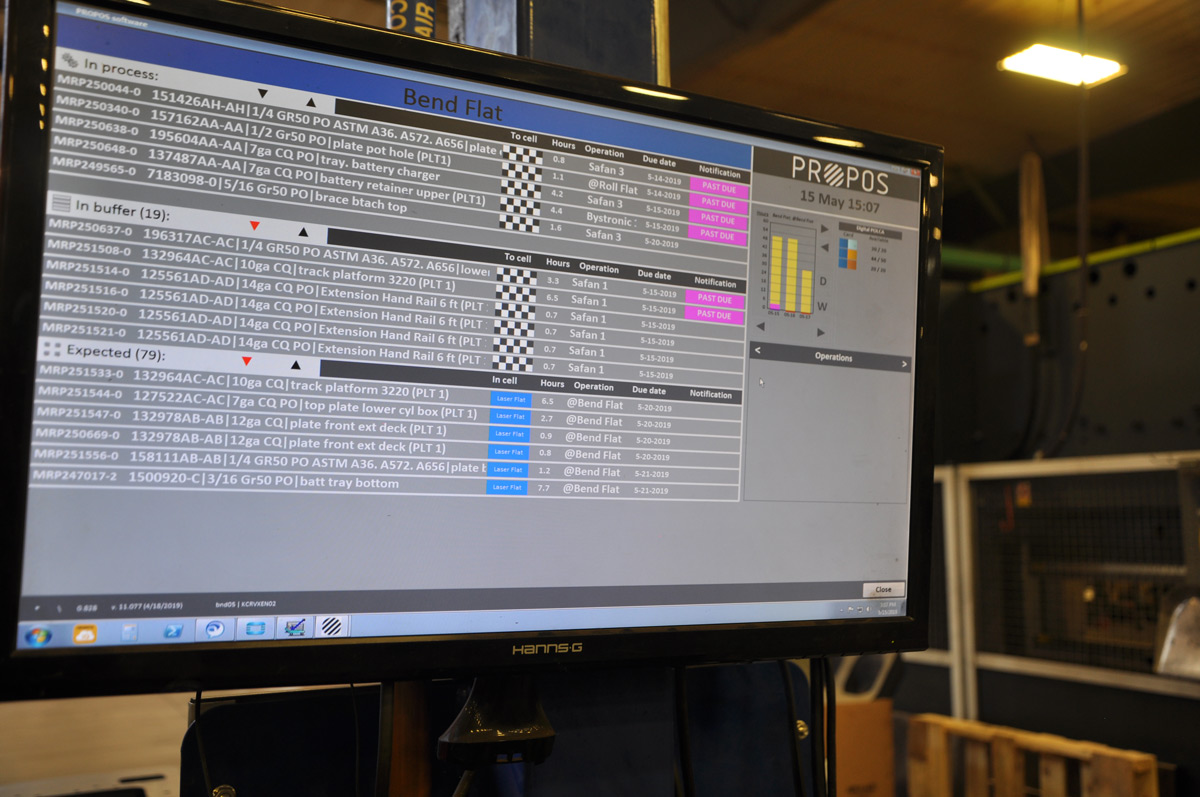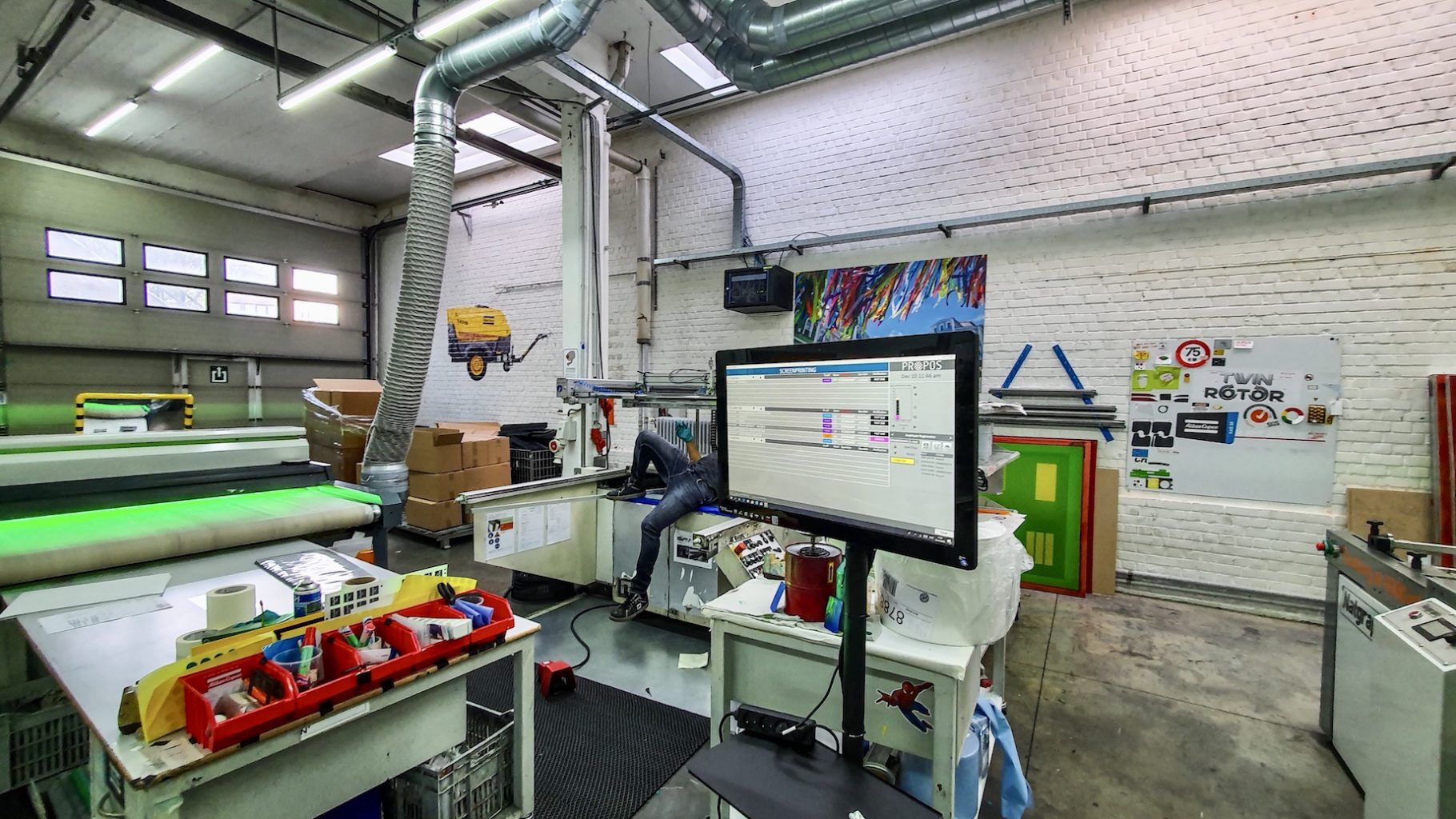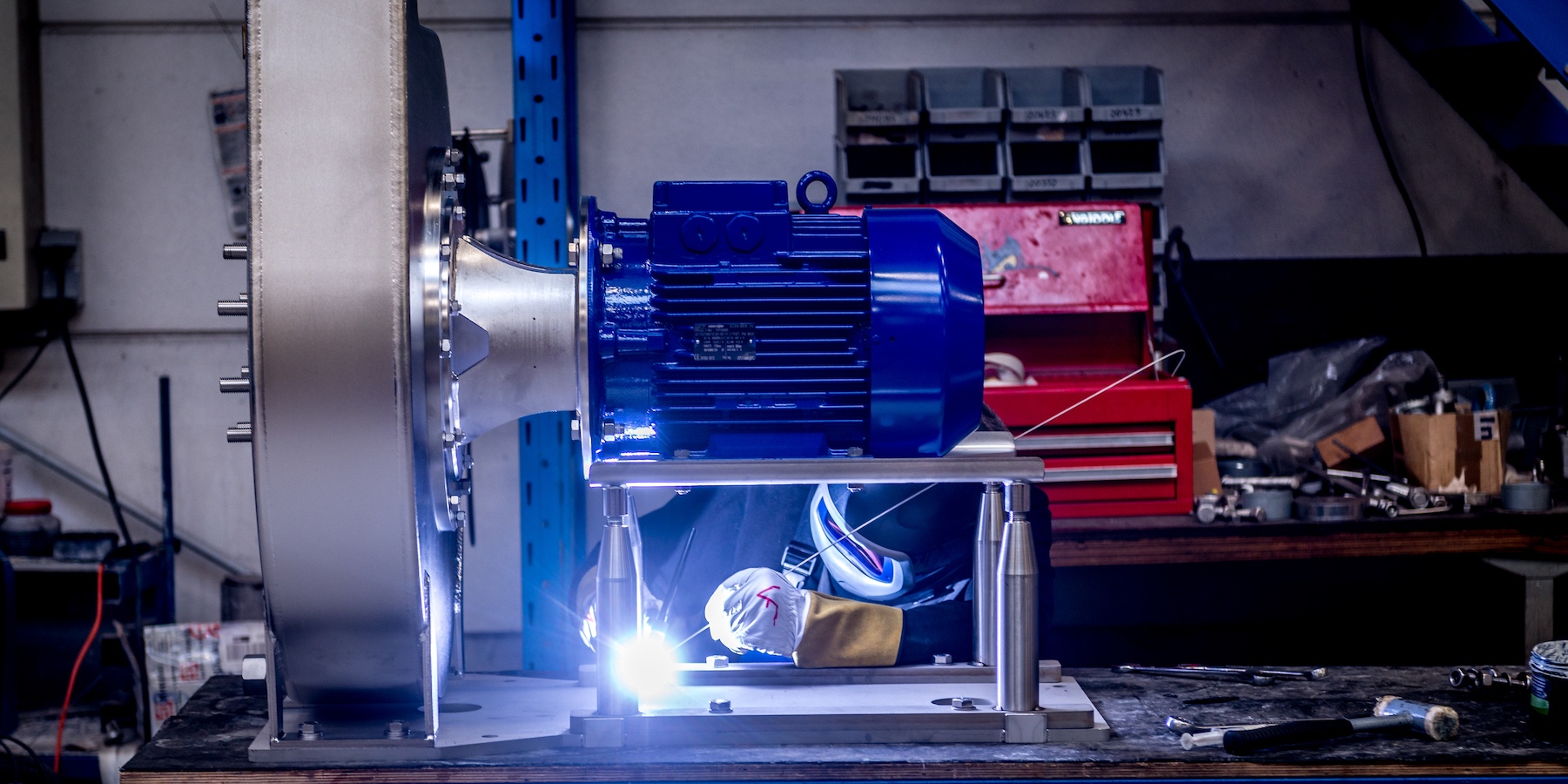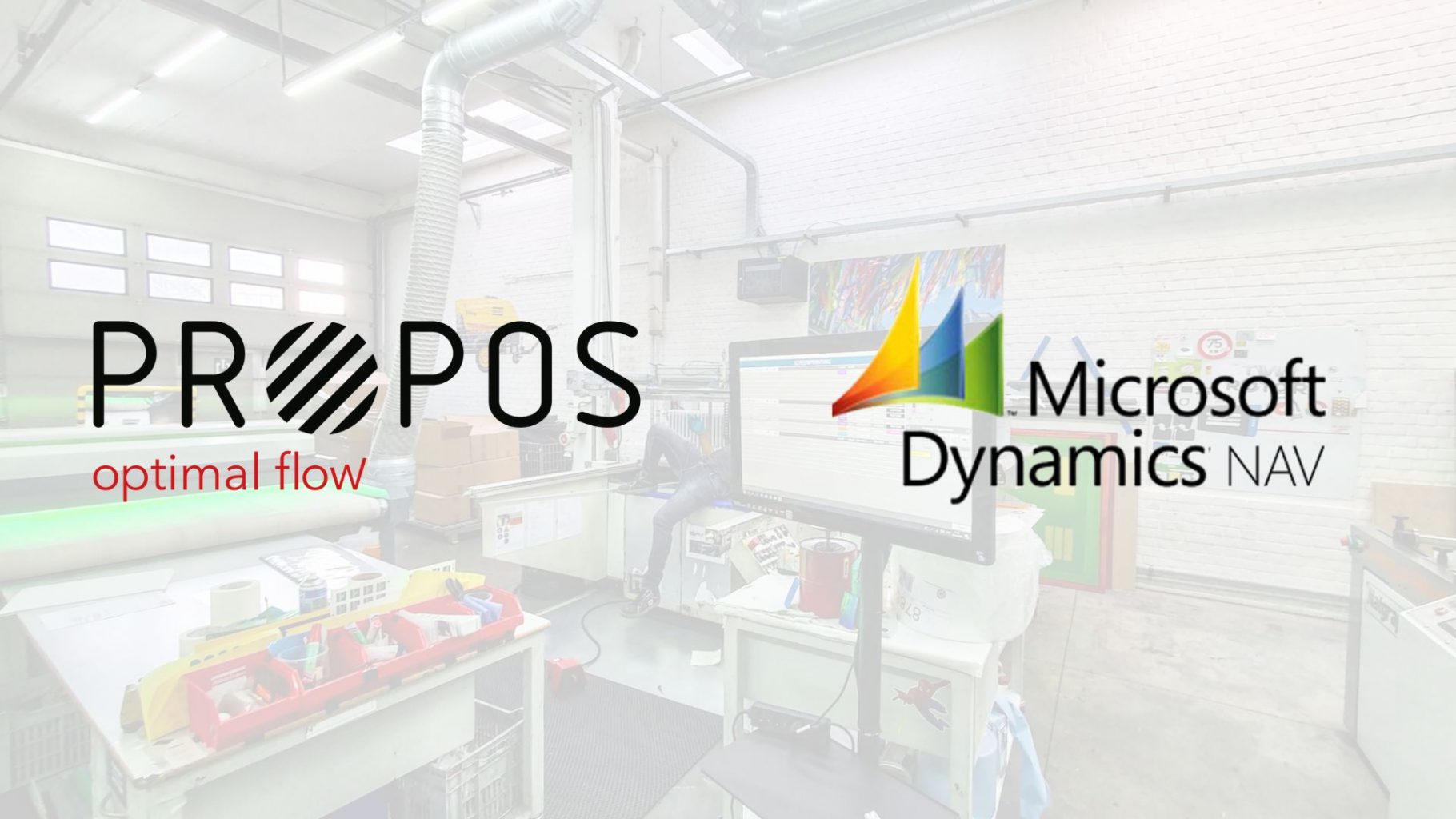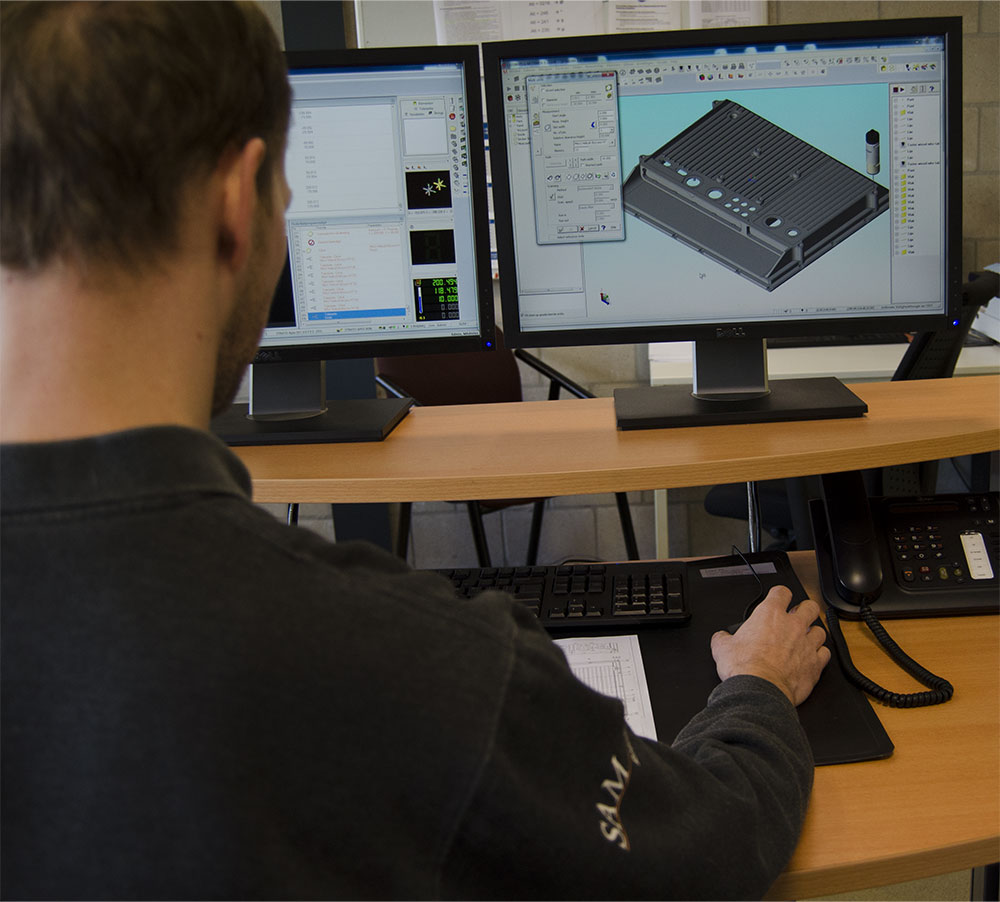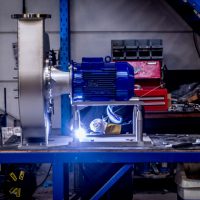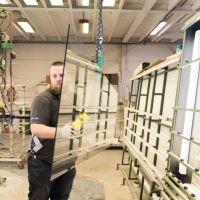A shop floor full of orders and machines that are scheduled at maximum capacity; it seems an ideal image for a shop floor to be busy and to get the most out of your machines. In practice, however, unnoticed this leads to negative consequences. Long lead times, employees searching for missing parts and work that stands still for an unnecessarily long time. And that results in customers having to wait too long for their orders. Quick wins can be found in tackling work in progress. In fact, less work-in-progress means better workflow and shorter lead times.
“It took some getting used to when I saw all those empty floors. Is our business still doing well? But we processed far more orders in the last few weeks than before. People think: as long as I have a lot of work lying around, they know I’m busy, but that’s not true. You are very busy, inefficiently.”
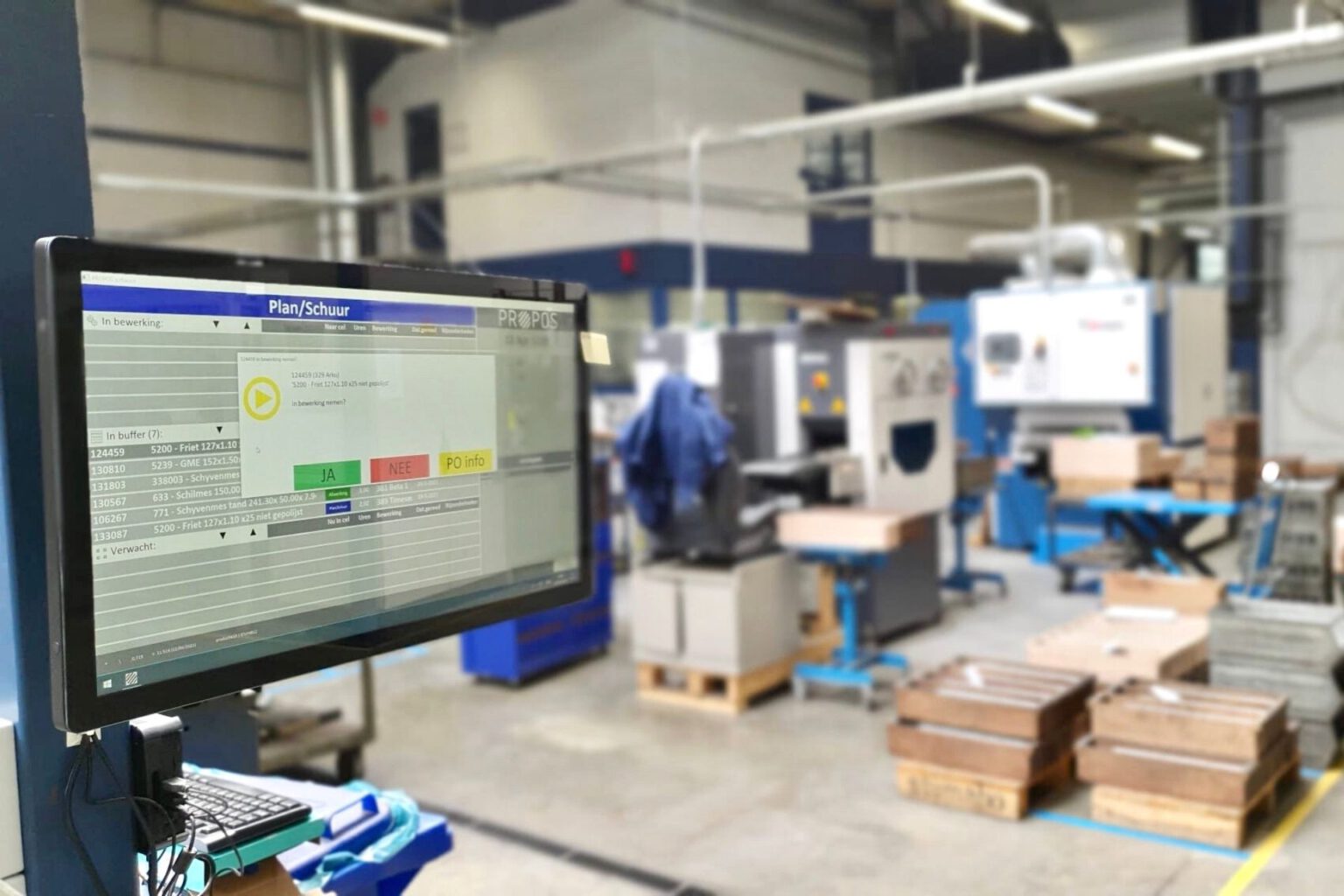
Why all this waiting time?
Manufacturing companies with a lot of variation in their production have trouble delivering to their customers on time. Often they do start production of the order on time, but it turns out that it has been idle for a long time unnoticed, or they wait until there is room at a particular machine, or on a particular part. Unforeseen circumstances make the whole thing even more complex and the schedule keeps shifting. In practice, often only a few days are really spent working on an order. So what goes wrong and why is the delivery time regularly many weeks?
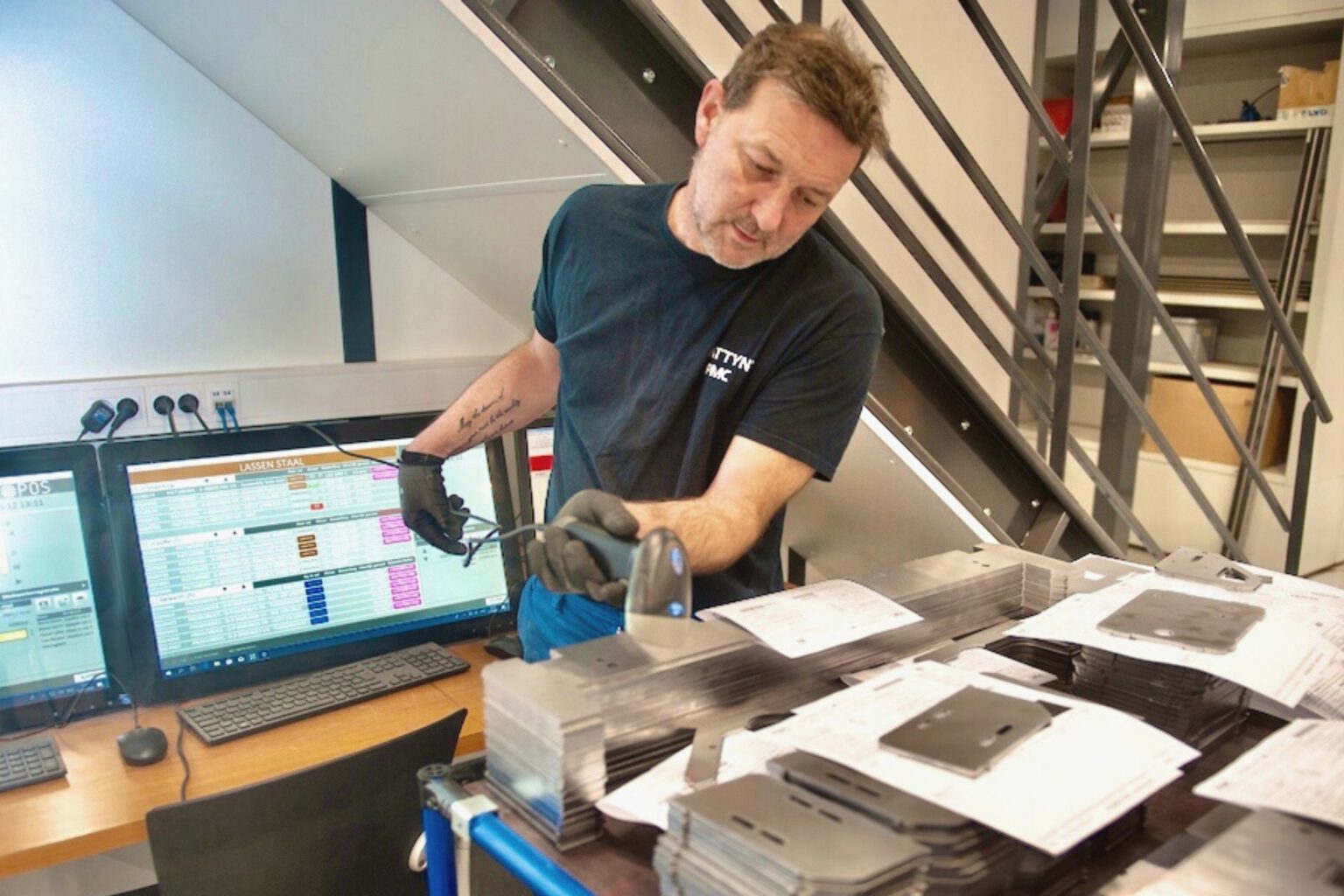
This is how unnecessary work in progress is created in your factory
It’s all in the work in progress (WIP). Here’s an example. Imagine what happens when the freeway is 100% full of cars. Indeed: traffic jam! The highway may be 100% occupied, but the cars are mostly standing still. Traffic jams occur in front of the exits and if you were to measure the flow – and thus the output – at a particular point, you will notice that it is very low. So by scheduling full, fewer cars arrive at their destinations on time. This is while if the number were slightly less, there would be room to drive and a higher number of cars would arrive on time.

- 100 cars travel on the road, due to maximum occupancy, a traffic jam occurs. 50 cars arrive on time.
- 80 cars are driving on the road, the little space allows everyone to drive through and all 80 cars arrive on time.
This is exactly what often happens in a high mix/low volume job shop. Over-scheduled machines cause many orders to jam. Work in progress accumulates. Compare it to two cars stuck at an exit, one of which still has a long way to go, but the other has almost reached its destination and yet has been stuck for hours. What a shame! And that’s where there’ s a lot of potential to be gained, and with it: satisfied customers.
Too much work in progress creates exponentially longer lead times!
De 80 auto’s uit het voorbeeld hierboven zijn niet helemaal uit de lucht gegrepen. De procesverbetermethode Quick Response Manufacturing (QRM) leert ons namelijk dat wanneer de capaciteit voor meer dan 80 procent benut wordt, de doorlooptijden zullen exploderen en exponentieel zullen toenemen. Bij te hoge planningsbezetting ontstaat file en dus veel onderhanden werk. Te veel WIP zorgt voor langere doorlooptijden en een onbetrouwbare leveringsbetrouwbaarheid. Dit betekent dus ook dat het verlagen van de WIP zal resulteren in kortere doorlooptijden en vaker op tijd klaar! En dat is nu precies één van de speerpunten van PROPOS.
“Less work in progress results in shorter lead times.”
Read more about how PROPOS works >>>
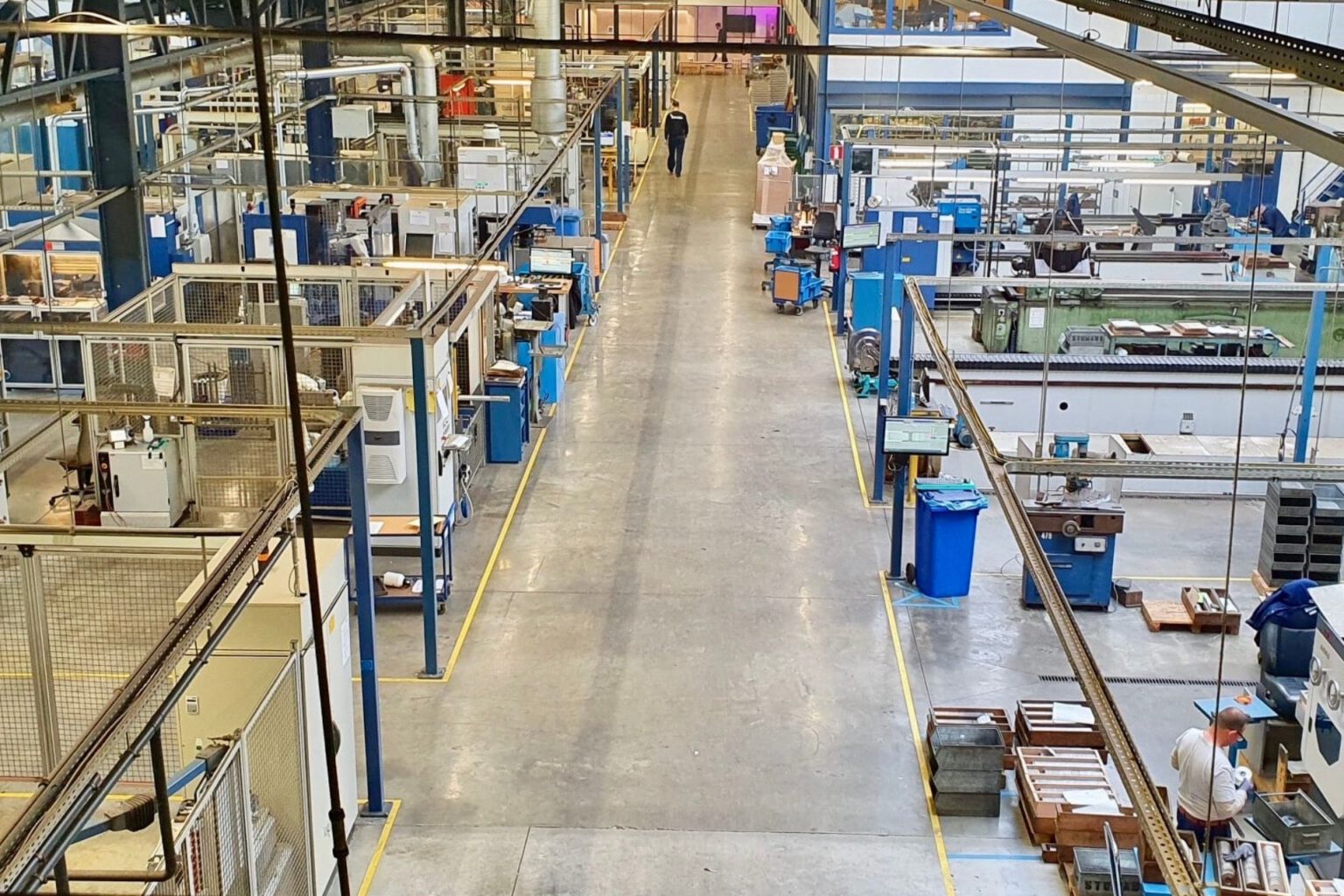
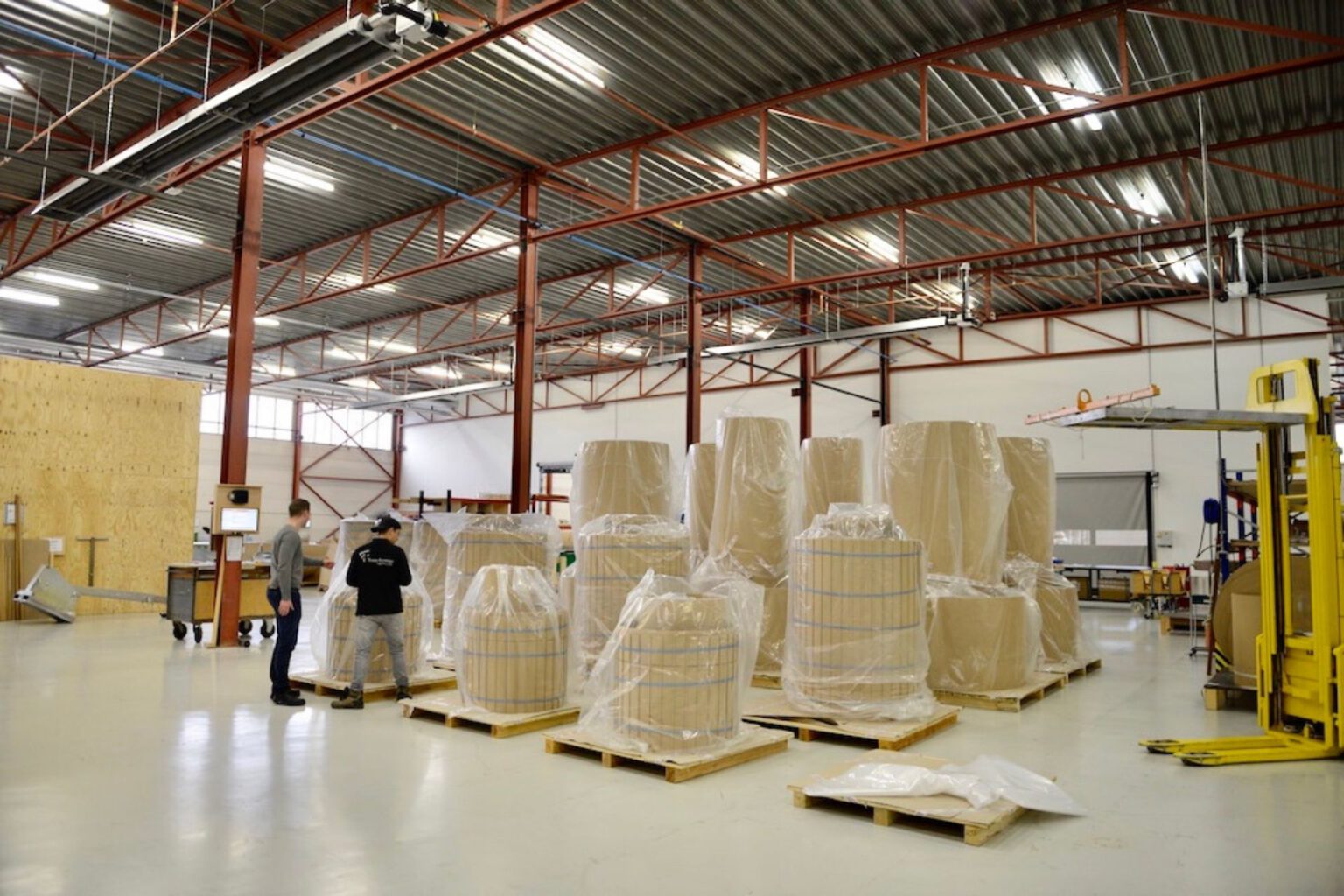
PROPOS reduces WIP with buffers and optimal flow in production
PROPOS divides the shop floor into clusters of matching machines, employees and operations. Production orders pass through these work cells (departments) via different routes. In front of each work cell there is a buffer for work in progress that moves through the plant as the order progresses. By managing these buffers intelligently, PROPOS ensures that the work cells do not fill up with work so that bottlenecks are prevented from occurring. At the same time, PROPOS helps ensure that work cells do not run dry.
After all, work in progress (WIP) is not necessarily good or bad. Like many things in life, work in progress is about balance. Too much work in progress on your shop floor leads to exponentially long waiting times and traffic jams in your plant. On the other hand, too little work in progress will result in low efficiency or even empty cells and therefore downtime. PROPOS ensures an optimal flow of orders between work cells through smart prioritization. By allowing parts to come together just in time, orders are not taken unnecessarily early into production, and unnecessary work in progress (WIP) is prevented.
“After six months, we have already gone from 52 percent delivery reliability to about 80 percent and even weeks with 91 percent, with about 1700 items. That’s amazing! In addition, we have already more than halved our WIP in a few months. That’s unprecedented in such a short time. What you can’t capture in numbers is the tranquility on the shop floor. The stress factor is gone.”
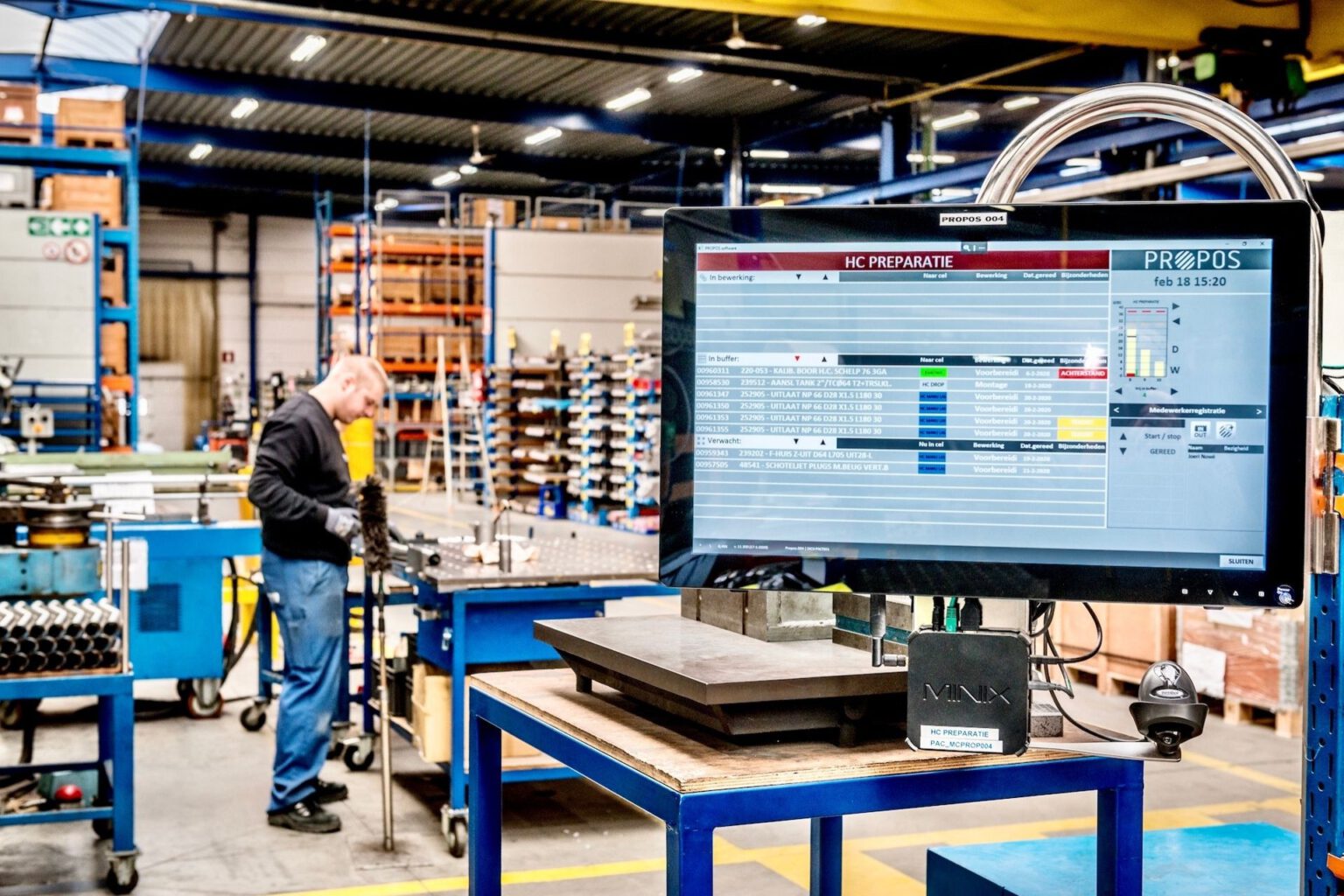
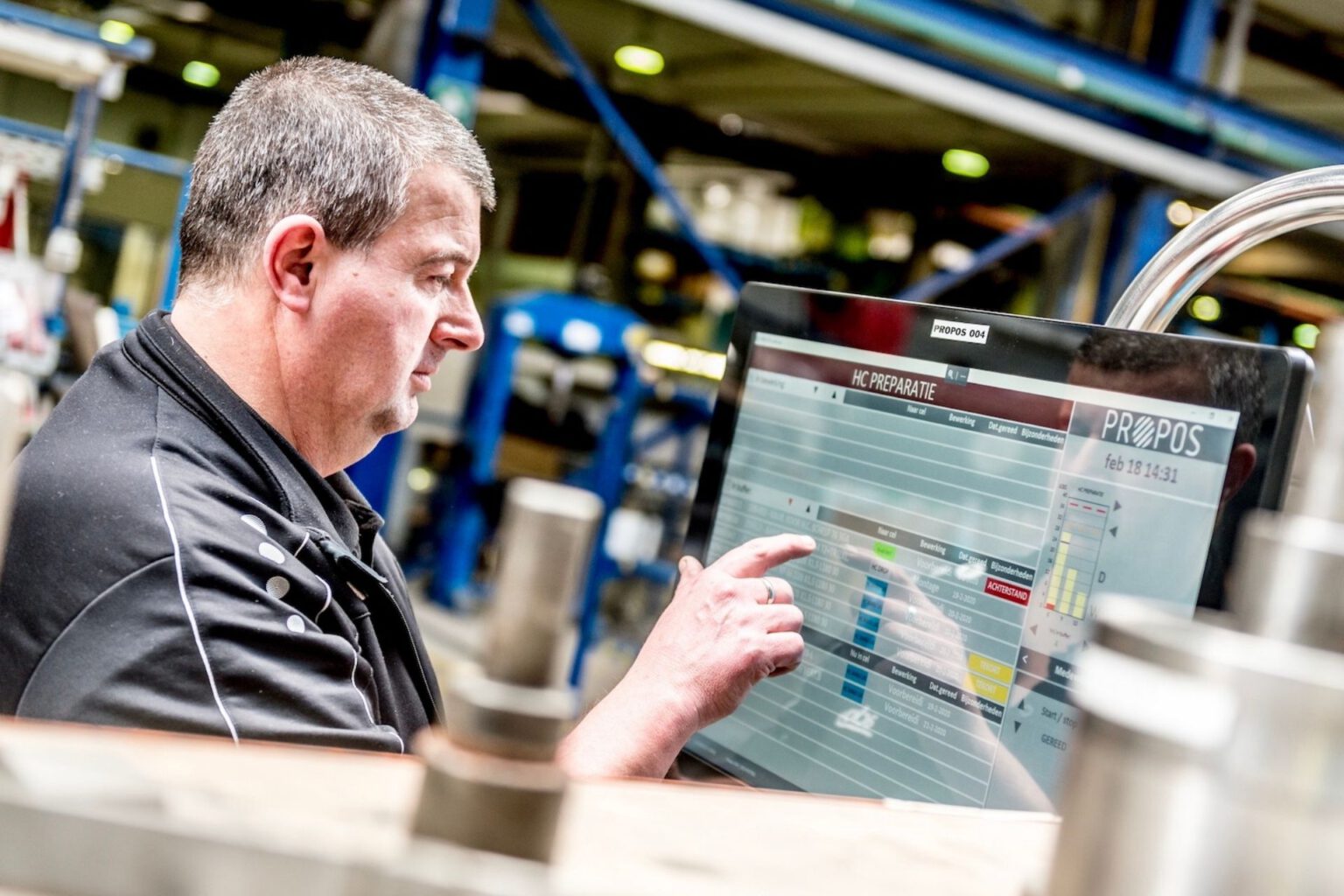
Jobshop execution ensures the flow of orders with pull production
The ideal scenario in a factory is pull production. Each cell that has capacity starts asking for work. The more capacity, the harder the demand. Production cells that are already starting to fill up will therefore be allocated somewhat less work than production cells that still have enough space. This ensures optimal flow in all cells and prevents accumulation of work in progress. PROPOS automatically creates a pull production by monitoring the production flow in real time and adjusting it where necessary, for example when a particular work cell becomes too busy. This prevents excess work in progress and bottlenecks.
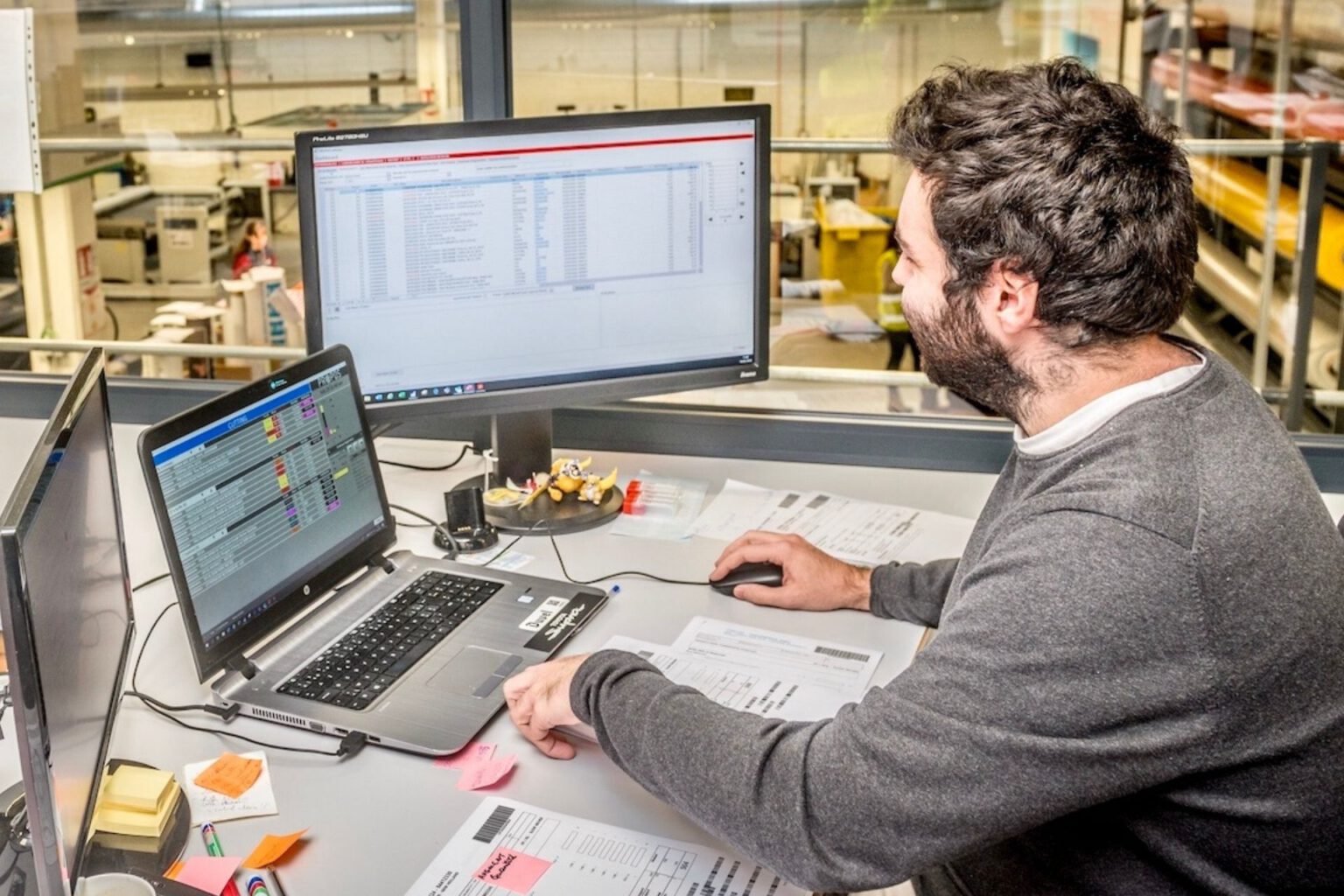
Do you nevertheless encounter a surplus, for example due to a conscious decision to take on an extra order on top of the 80%? Normally this would (could) lead to long waiting times. However, PROPOS notifies you in time, allowing you to anticipate this, for example by (temporarily) increasing the capacity for this production cell. When the 80% of work is completed according to plan, the remaining capacity can be used for rush orders, clearing out tomorrow’s work to create extra space in the planning, or improving the production process. In this way, in practice, 100% of the production capacity is used.
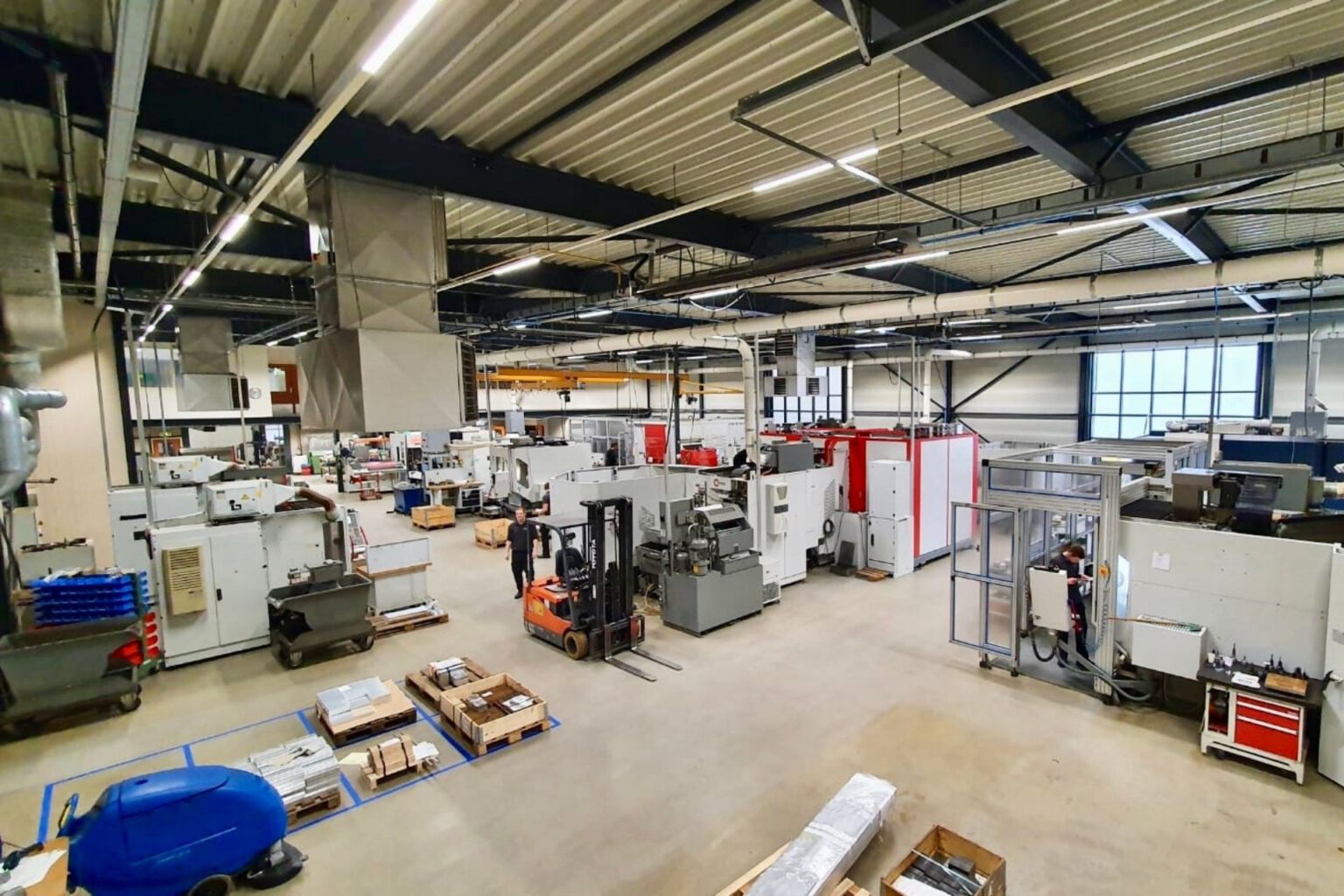
MCT-maps analysis with PROPOS: Waiting time and machining time in your production
A useful tool for gaining more insight into work in progress and thus reducing lead times in a targeted way is by looking at the Manufacturing Critical-path Time with MCT-maps. With PROPOS, you can very easily generate MCT-maps, which will give you insight into how long and where production orders stand still in your plant. You will see that production orders are usually idle for longer than you would like (waiting time), while the actual processing time is often very low. There is not much profit to be made in the production itself, the real profit is in the steps around it, the waiting time.
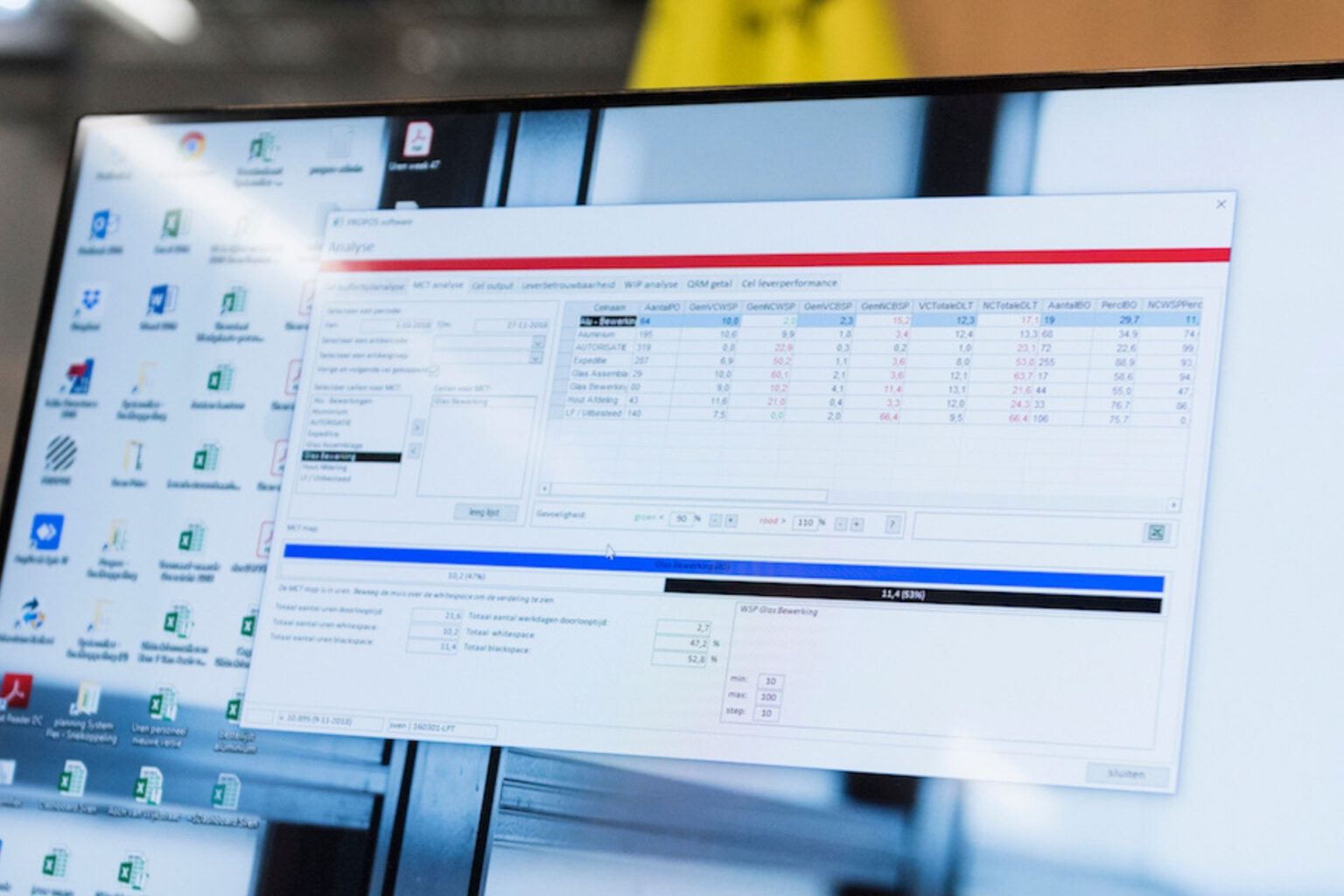
Actively improve processes with the WIP analysis tool
The WIP analysis tool in PROPOS then allows you to actively work with this information. Met deze tool kunt u het precieze verloop van het productieproces per cel volgen en haalt u het maximale rendement uit uw productie! Zo kunt u orders autoriseren voordat ze de werkvloer opgaan. Is een productiecel volledig volgepland? Dan kunt u het autoriseren tijdelijk minderen. This can also be done automatically with the digital POLCA module, a powerful tool for ramp metering.
The data insights from PROPOS thus form a powerful source of information, which can be made visual very easily. This gives you more insights into processes and shows you where you can make improvements to achieve even better results. Think for example of bottlenecks, visibility of actual production times and productivity.
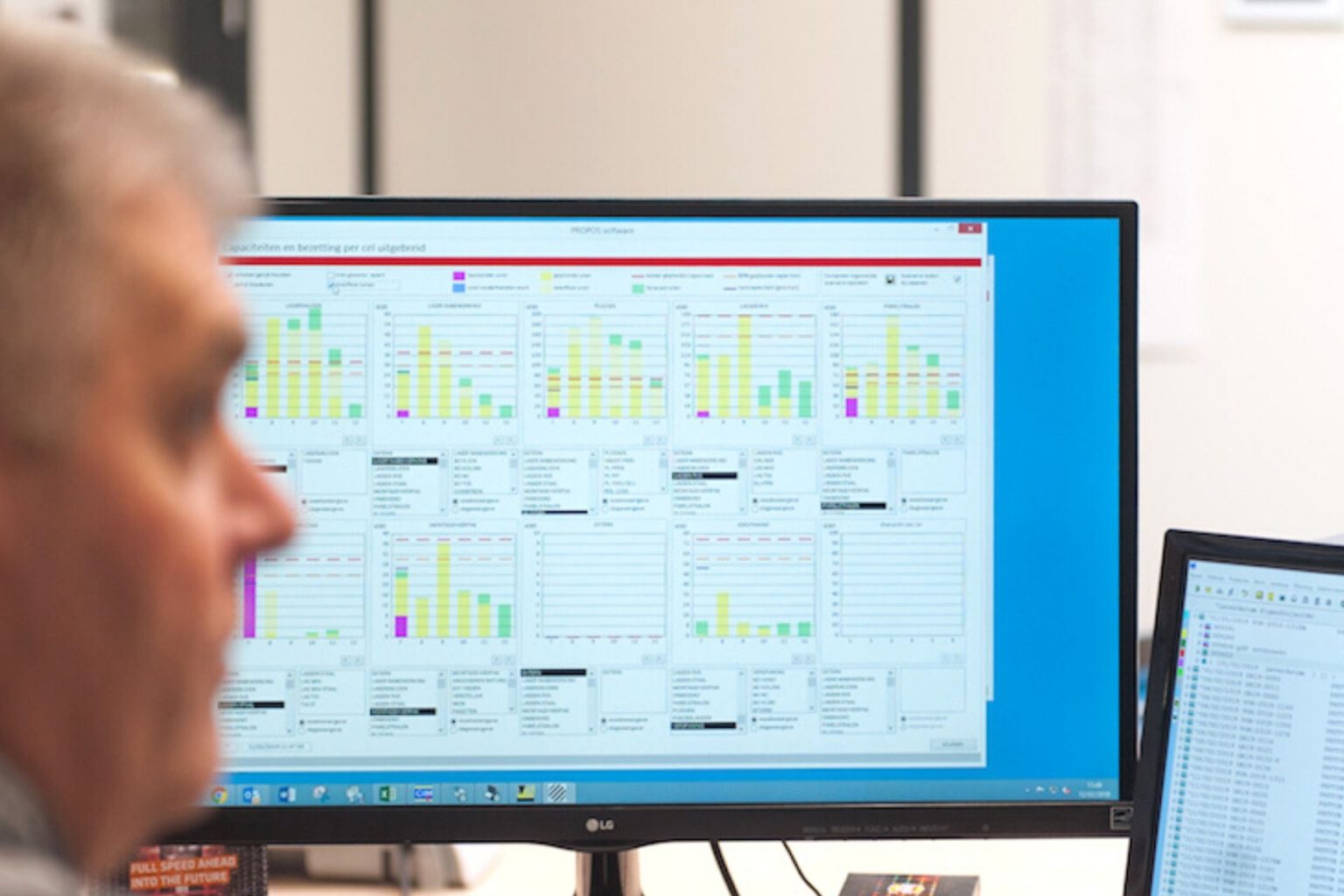
Less work in progress, more flow with PROPOS
With fully automated production planning and shop floor control, PROPOS instantly balances work in progress and guarantees the flow of production orders, while our powerful analysis tools give you the insights for continuous improvement. So you get more done, with less effort, in less time. Moreover, the lower workload means less working capital and more space on the shop floor.
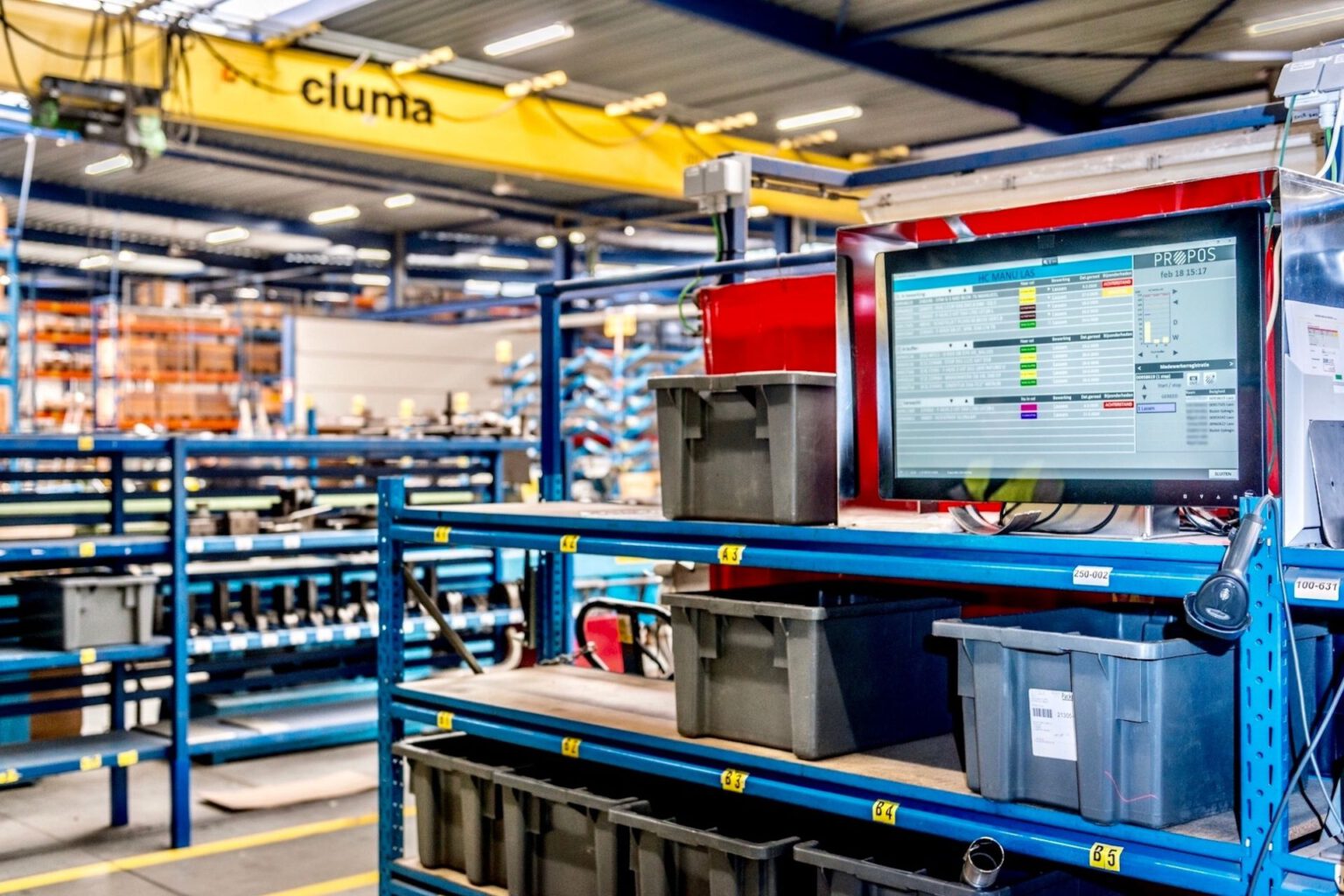
Benefits of less work in progress (WIP)
- More space available
- Less searching for the right order
- Less working capital on the shop floor:
the liquidity of the company therefore increases! - Reduction of overhead costs due to less searching, less ambiguities, etc.
- Shorter lead times
- And a better delivery reliability
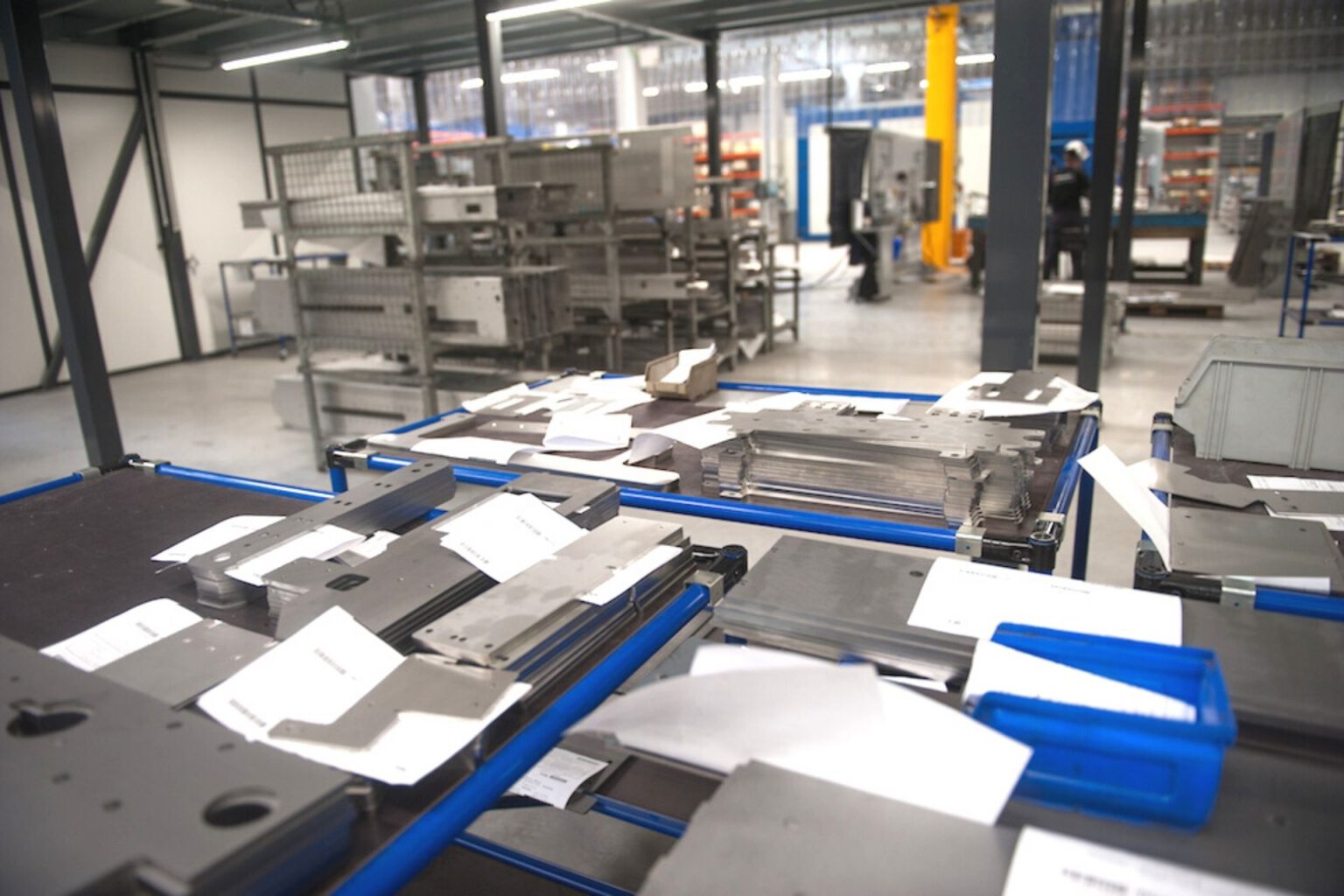
“After only 2 months, I evaluated: we had gone from 80% delivery reliability to 99.5%. In such a short time! That, of course, was fantastic. In addition, we only had half of the work in progress on the floor. So that’s twice the space you save and twice the time for not having to search for pieces!”
Also less work in progress and shorter lead times?
We would be happy to advise you on how PROPOS can increase the flow of your production orders at your company as well. Please contact us at info@propos-software.nl or call us at +31 (0)85 047 9865. You can also request a demo directly!
Back to home

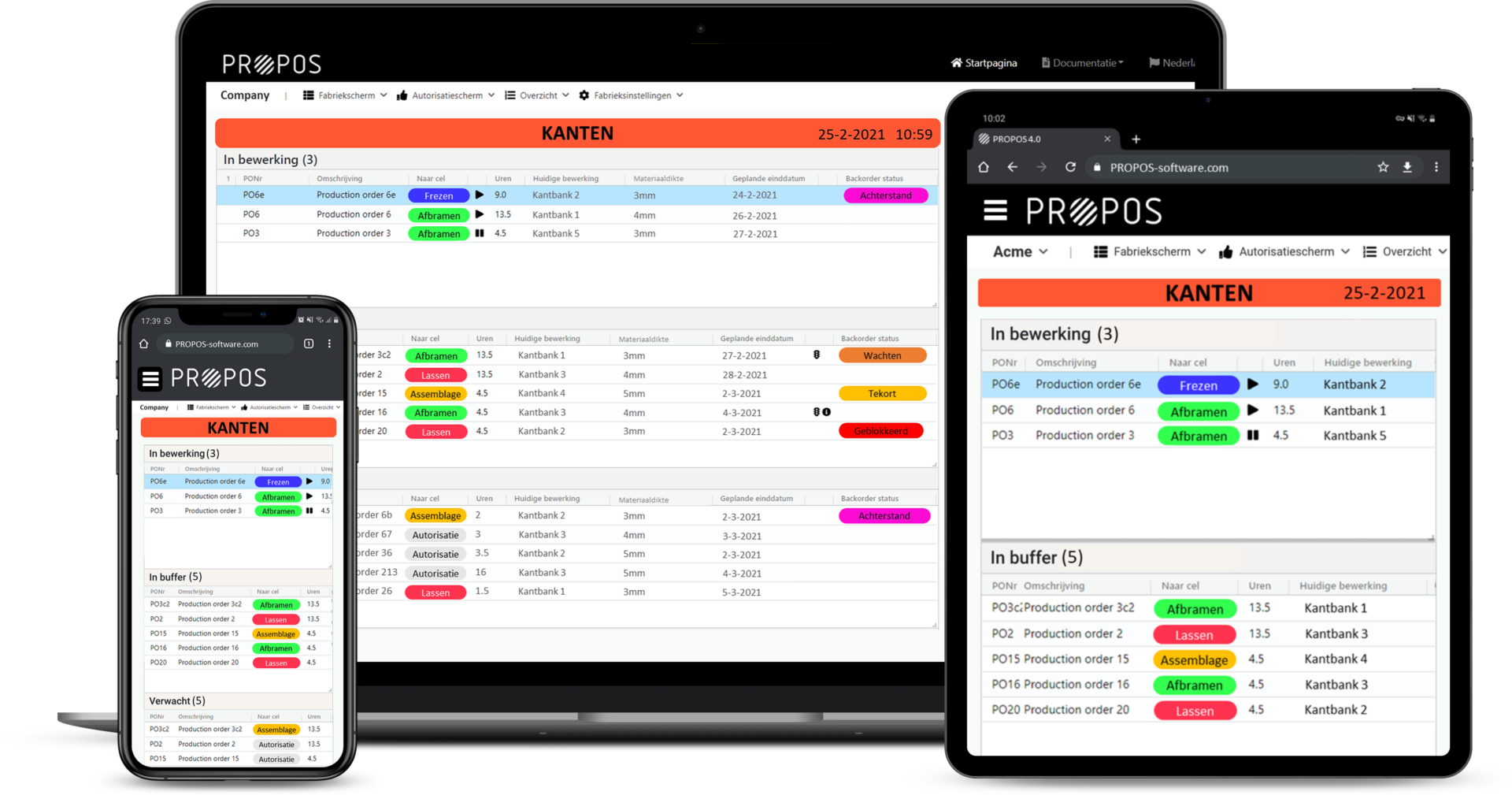
View all benefits of PROPOS >>>
Read more about what makes our jobshop execution system so unique >>>
